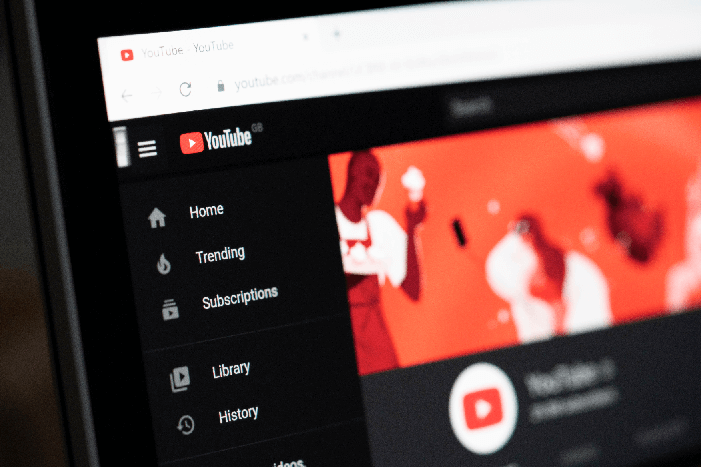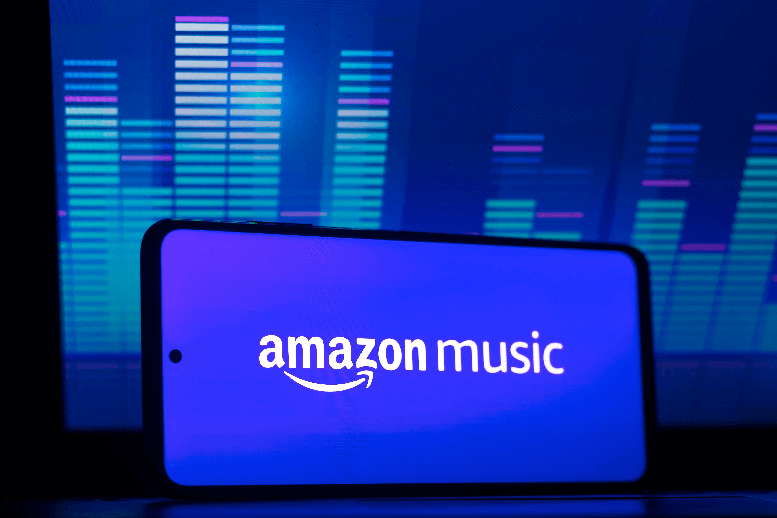The job market in the music industry is far from where it was as we entered the life-changing events of 2020. The number of layoffs in 2023 was rivaled only by years with major events: COVID in 2020, the 2008 economic crash, and the 9/11 tragedy of 2001.
The year 2024 is only a few months old but the layoff trend of 2023 seems to continue. To close out February, Universal Music Group (UMG) announced a round of layoffs that cost at least 50 people their jobs. The layoffs included some established industry executives like Chris Lopes of Capitol Records, Cara Donatto of Interscope, and Gabe Tesoriero of Def Jam.
In a little over a year, we’ve seen layoffs at UMG, Disney, Warner Music Group, Spotify, and many more.
The Evolution of Major Entertainment Companies
When looking at the music industry from above, you could say five major media companies are in charge of the whole industry: Universal, Disney, Warner, Sony, and Spotify. Each of them has implemented layoffs as a tactic in the last year.
Universal
UMG is widely considered the top music companies in the world. According to Statista, they control roughly 32% of the music market.
Here is a look at UMG’s revenue (in Euros) over the past five years:
2023: $12.07b
2022: $11.23b
2021: $9.23b
2020: $8.07b
2019: $7.78b
Disney
You’d have to alienate yourself from all entertainment media to not realize Disney’s acquisition spree and you wouldn’t be reading this if that was you.
After purchasing ABC and ESPN in 1995, Disney went on to acquire Pixar, Hulu, Marvel Entertainment, Lucasfilm, and 21st Century Fox among several others.
And despite these acquisitions, the company laid off 7,000 in 2023. The layoffs were part of the company’s strategy to cut $5.5 billion of operating costs.
Warner Music Group
Warner Music Group (WMG) kicked off 2024 with two major announcements. The company made $1.75 billion in the last three months of 2023—its highest quarter ever.
It promptly followed that news by letting go of 10% of its workforce, or about 600 people. The move will reportedly save them $200 million to reinvest in the company.
Sony
On March 1, 2024, Sony announced it was letting go of 900 people in the company’s PlayStation departments. In September, Sony Music had already downsized its podcast operations as part of its cost-cutting spree and there is a belief more layoffs are coming for this branch.
In 2023, Sony raked in $88.8 billion in revenue and blew away the previous year, growing 18%.
Spotify
The youngest giant on this list is Spotify. The company was founded in Sweden back in 2006. Spotify went public in 2018 and reported $6 billion in revenue for that year. By 2023, the number ballooned to $14.7 billion.
Partial List of Media Industry Layoffs
As you can tell by the four companies above, music is one vine of a tangled media & tech industry that includes heavyweights like Google, Amazon, and Meta. Here is only a partial list of media companies layoff numbers:
- Amazon: 27,000
- Spotify: 2,300 people over 3 rounds
- Paramount: 800
- Roku: 560
- Sirius XM: 475
- Netflix: 450
- Alphabet (Parent company of Google and YouTube): 100 YouTube employees
Factors Contributing to Layoffs
One reason the layoffs continue could be the media companies controlling most music you hear are unable to adapt quickly enough in a rapidly-changing landscape. However, not all layoffs were due to the same reasons and not all factors were in the control of the companies themselves.
COVID-19
When the pandemic shut down the world, it was a major shift in how everything worked — including work itself. Companies moved to working from home. Some companies downsized, letting go of employees who couldn’t work remotely. Others went on a hiring spree to adjust to consumers’ new living realities.
These changes occurred in waves. You saw a large amount of job losses, including temporary furlows. Then, came a wave of hirings. And when the emergency responses began to level off into what would become the overused “new normal,” more job adjustments occurred.
Labor Strikes
When a company or industry goes on strike, its effects are felt beyond what you can see. In the case of the entertainment industry, the writers and actors strikes led to media companies halting almost all production. It’s estimated these strikes cost the U.S. economy $5 billion.
You’d think having no new films or shows could be a boost to the music industry and while in some ways it was, it also meant less work for film and TV composers and fewer channels for musicians to promote new music or for established artists to receive additional royalties. Remember the resurgence of Kate Bush’s “Running Up That Hill” thanks to Stranger Things.
Consumer Behavior & Tech Evolution
When it comes to layoffs, music companies are working with the mentality that cuts are needed for growth. The companies see an industry where the business space between musician and listener is constantly changing and shrinking, as evident in consumer behavior and the evolution of music technology.
The Grammy Museum in Los Angeles has an exhibit called the Mono to Immersive Experience. Along the wall of that exhibit you can follow the evolution of the way listeners enjoyed music through the years.
Behind a glass case, you can follow a timeline that runs from wax cylinders to records, 8-tracks, cassettes, and CDs. The physical timeline ends there because after CD, there is no physical way of representing how you listen to music. And what the digital revolution has brought about are consumer behaviors that change quickly — much quicker than before.
We now listen in old and new ways. We listen differently based on where you are and what you’re doing. Certain genres, like K-Pop, still see high CD sales. And no doubt you’ve seen the resurgence in vinyl sales. But you don’t leave the house with your records and even though you may still have a CD player in your car, you probably don’t take those with you either.
When it comes to online listening, Spotify may be your app of choice for music (it’s mine). You may also listen on an Amazon Echo while around the house. If you do, you’re probably also using Prime Music. You may even have YouTube or TikTok listening sessions.
Social Media
While many artists use these platforms to grow communities, share new music, and build their brands, the major companies tend to clamp down and force social media platforms to remove copyrighted music.
Social media companies pay a certain amount of money to the music companies and when those numbers are shared, record companies are making small amounts of money from this channel. According to Dan Runcie of the Trapital podcast, UMG reports their revenue from licensing to TikTok (before removing their music from the platform) was about 1% of their overall revenue.
Digital Streaming Platforms
Streaming services rocked the music industry. Prior to streaming, record labels and music companies created the physical products consumers purchased to enjoy music. Most of the money went to them and a small percentage to the artists, writers, and publishers.
With streaming, music companies gave up some of that power to the streaming applications, creating a section of the music industry worth over $40 billion by 2022.
Streaming platforms have individual contracts with larger artists and their labels. Smaller artists fall into a single pool with streaming services that gives them a percentage of a cent per stream, and usually only after reaching a certain amount of unpaid streams to count.
If an artist finds success on a streaming platform through their own efforts, they don’t really have an incentive to sign with a major label. And when an artist does sign with a media company, they must still work with the streaming platforms to distribute the music.
Market Pressure
Recall that in the case of our top four media companies, we’re talking about companies controlling billions of dollars in the economy. As these are publicly traded companies, their largest investors expect growth year over year but they are reaching points where they can only see growth through cost-cutting or through acquisitions.
Both of these paths often lead to layoffs. If a company must reduce costs, it can look at eliminating smaller departments, reducing staff, and combining positions.
Remaining staff can often be overwhelmed with work and wind up with a declining work culture and employee burnout — but that’s another story.
As for acquisitions, rarely does a company bring in 100% of the staff of the company it acquires. Departments within acquired companies are merged with the parent company and sometimes fully dissolved.
Ripples of Industry Layoffs
As is usually the case with layoffs in any industry, there is a reverberating impact. This impact affects artists, fans, and often the product itself — i.e., the music.
Effects on Artists
Artists who are tied to major labels can end up in limbo during a staff shakeup. Music directors and A&R personnel work closely with various artists and when they leave, artists are left behind.
Musicians under contract can lose their entire team due to layoffs. They remain contractually tied to a major label but don’t have a person invested in their success.
Effects on Content
The word content has universally replaced the art musicians make. And perhaps that change is also an indirect result of such a volatile media landscape.
If media companies can merge or dissolve, and staff can be hired and let go with such ease, perhaps content is churned out when the opportunity exists and slows during periods of change.
Effects on the Public
Have you ever found yourself asking, “what ever happened to…?” If so, welcome to the club. Even if you are aware of layoffs happening at, say, Universal, you may not realize how that will affect your favorite music.
Artists may not be directly signed to Universal but may instead work with a record label that falls under the umbrella of the larger company. Did you know UMG controls Def Jam, Interscope, Geffen, Capitol, Abbey Road Studios, and many others? Then you have independent record labels that sign distribution deals with majors. In this situation, the independent label and the artist record the music and then use the weight of the major to get the music placed in stores and streaming platforms.
And what’s wrong with an artist’s music slowing down during a challenging period for their music company? It’s often said that artists that reach stardom need more than talent. Often, they are making the right music, in the right place, at exactly the right time to grab an audience by their soul. Miss that opportunity and you may never see it again.
Ethical Concerns
Today’s consumers tend to care more about the people behind a brand. Companies large and small share their mission statements and internal values publicly knowing their audience will respond to this.
When layoffs are announced, media companies have to consider the ethical ramifications that come with the announcement. And truthfully, media giants have not fared well during this time. Leaving people without work is only the latest in a string of ethical predicaments.
Artist Compensation
Spotify Wrapped has been a major marketing tool for the company. Each year, users relive their year in music and share some of those key moments on social media. The designs behind the year’s Wrapped quickly become memes and used to deliver other messages throughout social media apps.
And each year we’re reminded that artists earn only a small fraction of what Spotify collects from users annually. Companies such as Deezer are making changes in this model. Merlin, an organization focused on ensuring independent artists have access to the deals, tools, and opportunities to succeed in the digital marketplace, joined Deezer in rolling out the new model to artists in France.
Jeremy Sirota, CEO of Merlin, said on the deal, “We have worked with Deezer to ensure their new model works for the benefit of our members, representing a path forward in ensuring that high-quality music, and the artists who create it, are recognized and rewarded in the manner they deserve.”
Censorship
From the infamous explicit content sticker to changing artist visuals, music, and presentations without their permission, media companies have censored artists as they saw necessary. And most of the time this was done without equity.
Labor Practices
Former employees and whistleblowers have accused media companies of overwhelming employees with too many responsibilities to deal with — especially after laying off fellow workers.
Losing your job is traumatic. You wonder how long it will take to get another job, how it will affect your family, and if you’ll continue to provide for them. Imagine losing your job at a major company like UMG, only to then begin your job search and find UMG has a job posting for a position similar to the one you just lost.
Use of AI
Here at Vortex Entertainment, we’ve covered how artificial intelligence (AI) is changing the way music is made. AI can dictate what you see and hear at work on apps like Instagram and Spotify. At the creation side, artists are already using it to write and compose. And of course, the industry is using it in post-production, distribution, and promotion.
The labor strikes of earlier this year included arguments over AI using image and likeness of actors and even using AI to write scripts. If media companies believe this is where we’re heading, there’s no doubt some executives are considering the possibility of AI-composed music scores and a future of AI-generated music.
Media executives have publicly embraced the use of AI as a possible replacement of people working even the most creative jobs.
Indie and Other Alternatives to Large Companies
As artists have found new ways to create, promote, and distribute their music, fewer artists are turning to major companies for immediate support. It used to be if you wanted your music to reach the world — a necessity for financial success — you had to get the help of a major label.
Today, not only can artists find success without a label or by creating their own small label, thanks to the process of making and distributing music becoming cheaper and more accessible, more artists are happy staying small and nimble if they can make a decent living. Not that this path is easy but artists understand there is a path that doesn’t require a major record company for success.
While these artists may actually eventually join a major, they’ve found success growing on TikTok:
- Aliyahs Interlude
- Austin Williams
- Flyana Boss
Streaming
Granted, social media streaming platforms like TikTok don’t pay a lot per stream. TikTok pays $0.03 per thousand views of your video that uses your music. Monetizing on TikTok is best done through moving merchandise to your community. Artists who find success this way, can make this a lucrative revenue source.
And because independent artists are not tied to a record company dictating new music release windows, they can put out as much music as they wish to keep bringing their audience back to their catalog.
Crowdfunding
Artists and small labels can also turn to crowdfunding to have a loyal fanbase support production and promotion efforts. Using companies like Kickstarter, Patreon, and Indiegogo, musicians set up campaigns with needs, timelines, goals, and community perks. Artists can have fans finance an entire project in exchange for perks like special edition vinyl recordings or unique live-event experiences.
Direct-to-Fan Engagement
Never have we seen more artists skipping every “middle man” to go directly to their fans. Open up TikTok today and type in any genre of music. You’ll find a long list of artists playing their music for their fans, taking and answering questions live, and even writing using requests from their fans.
Media companies have never experienced artists with so many options to thrive without them. And this is perhaps the biggest reason why their “growth” strategies are based on shrinking their staff and other costs.
The Future of Major Entertainment Companies
Many of the companies in this discussion are laying off their staff while their revenues continue to increase. Trouble is they may feel a ceiling is nearby and the only way to grow is to cut staff. This is not a sustainable strategy for them or the world economy.
Here are a few strategies companies can consider to remain relevant and sustainable in the changing industry landscape:
- Embrace platforms like YouTube and TikTok to serve as launching pads for new artists
- Support a reemergence of small labels to develop artists — invest in the label and its scrappy personnel
- Invest in immersive experiences that bring artists to people all around the world — VR, AR, and MR technology is coming
- Maintain an artist roster your team can support and stay agile and small — don’t overextend your people and resources
- Work to find long-term success for your artists rather than the immediate TikTok trend
- Embrace AI rather than fear it, and work to find positive uses and paths for the technology that won’t cost your team their jobs
Large media companies face struggles they haven’t seen before. They see fans with shrinking attention spans, tastes that change as fast as social media trends, artists with more options to succeed without them, and a technological shift that could disrupt everything from how we listen to music to how it is made.
Until these companies can find a sense of stability in the tech and media environment, the layoff trend may have to continue as it is at this point the companies’ main survival tactic.
At Vortex Entertainment Group, we seek to facilitate an environment of diversity and inclusion, innovation, and transparency that drives the creation of unique immersive experiences as well as helps brands and platforms get the resources needed to best serve the entertainment community. Contact us today and set up an initial consultation to see how we can help you deliver a project you can be proud to call your own.



